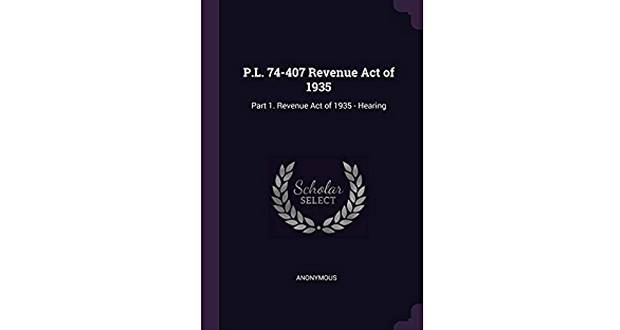1Xenddi Religious Tax

Xenddi was a discriminatory tax system which was implemented by the Portuguese Christian government on the Hindu population of Goa, Daman and Diu in India. It was a religious tax imposed on the native Indians, which forced many to flee Goa or convert in order to stay.
2. In 1784, Britain introduced a brick tax to pay for wars in the Americas Colonies. Bricks were taxed per thousand. This resulted in manufacturers using larger bricks. In 1801, the government responded by limiting the dimensions of brick and doubling the tax on larger bricks.
3. In 1698, Peter The Great introduced the "Beard Tax" after he visited Western Europe and liked their fashion sense. Anyone with a beard was forced to pay tax for it and in turn given a beard token. If you were stopped by the police without the token they would immediately shave your face on sight.
4. Until 1924, British colonizers imposed tax on the lower caste and untouchable Hindu women in the present-day Kerala state of India if they wanted to cover their breasts in public. The tax was evaluated by the tax collectors depending on the size of their breasts.
5. Switzerland has forced male-only conscription and the men that don't qualify are stamped with a high 'male tax.'
Latest FactRepublic Video:
15 Most Controversial & Costly Blunders in History
6The Revenue Act Of 1935

In the New Deal, Franklin D. Roosevelt called for a new tax program called the Revenue Act of 1935, which imposed an income tax of 79% on incomes over $5 million. This tax rate affected only one person, John D. Rockefeller.
7. During World War 2, USA imposed a 5% Victory tax on all individuals with incomes over $624 (2020 ~$10,000) with postwar credit.
8. In 1936, Pennsylvania imposed a 'temporary' tax on all alcohol sales to help out the victims of Johnstown Flood. That tax is still being charged.
9. Alcohol's strength is measured in "proof" since 1500s when England increased taxes on drinks containing a higher percentage of alcohol. Officials measured alcohol’s strength by soaking gunpowder in the alcohol and trying to ignite it. If it ignited, this was "proof" that it had a high content.
10. Scientology obtained their tax exemption from the IRS by having personal investigators dig into the personal lives of IRS managers and initiating hundreds of lawsuits against IRS employees. Eventually, Scientology offered to drop all suits for religious tax exemption and the US government caved.
11Candy Tax

Chocolate was classified as "candy" under the Revenue Acts of 1918 and 1921, and so it was taxed as such. Hershey's sued to recover about $8,000,000 in taxes by arguing it was "food," and so had been wrongly taxed. The Supreme Court ruled it was "candy."
12. Norwegians only have to pay half of the tax they should be paying in November (compensating by paying more tax in other months), so that they can have more money during Christmas.
13. Many famous British artists, including Rod Stewart and the Rolling Stones, left the UK in the early 70s to avoid an 83% tax on the top bracket of their income.
14. When Australia abolished its inheritance tax in 1979, a disproportionate number of parents died in the week immediately after the abolition went into effect, suggesting that many of their heirs were doing everything to keep them alive just long enough for the inheritance tax to expire.
15. The Rosetta Stone was a tax document outlining the tax-exempt status of a temple.
16Gas Guzzler Tax

The Gas Guzzler Tax was introduced in the USA in 1978 to discourage the production and purchase of fuel-inefficient vehicles. Disregarding the shift towards SUVs and pickups, it still only applies to cars.
17. England used to have a "window tax." People refused to disclose how much money they made, considering it an invasion of privacy. So starting in 1696, English government started charging its citizens based on how many windows their house had. In retaliation, people bricked up their windows, traces of which can still be seen today.
18. Newspapers are so big (broadsheet) because the British government began taxing newspapers in 1712 based on the number of their pages.
19. In ancient Korea, rice was used as currency and to pay taxes. A rice payment law was even put in place during the 1600s which mandated collecting rice for state taxes. Consumption of rice was mostly limited to those from a higher socioeconomic status during this time.
20. "Bob Jones University" in South Carolina was established by a Christian evangelist and therefore didn't allow African-Americans to attend the university until 1971. From 1971 to 1976 the only blacks that were allowed were married couples. In 1982 they lost a Supreme Court case and had to pay back taxes from 1971. Interracial dating wasn't allowed at the university until 2000.
21Action Figure Tax

Due to a strange law in America where importing toys resembling humans are taxed higher than those that do not; Marvel successfully argued in court that because their X- men action figures are mutants, they should be exempt from the tax.
22. Witchcraft is so accepted in Romania that in 2011 the government tried to tax witches to help pull the country out of recession.
23. In 1949, students in Ghent, Belgium stormed a he medieval castle, lowered the portcullis, and threw fruits from the castle’s walls at the police to protest a new tax on beer. The event is still commemorated yearly by the city as the greatest student prank in its history.
24. In 1954, the city of Bombay in India had such a bad rat problem that they began accepting dead rats as tax payments. This led to the mass breeding and killing of rats to use them for payment.
25. Everyone in Iceland pays church tax, and the payment of those unaffiliated with a church goes to the University of Iceland [at least as of 2004].




